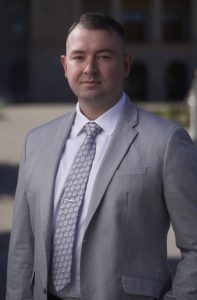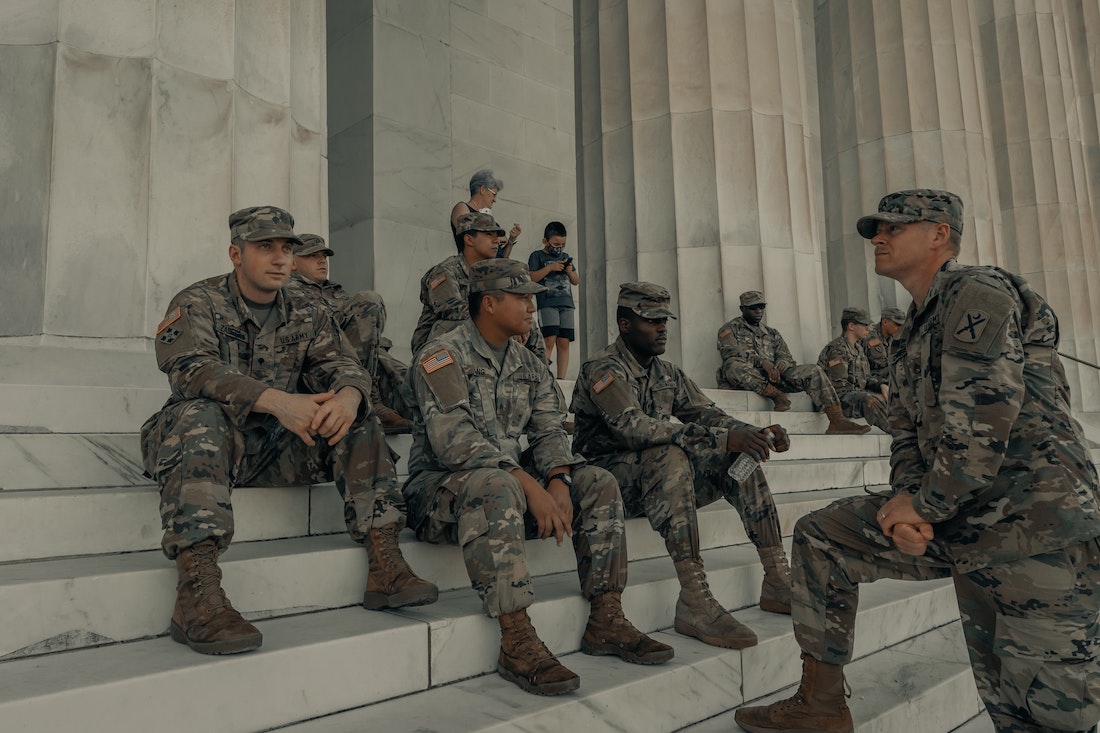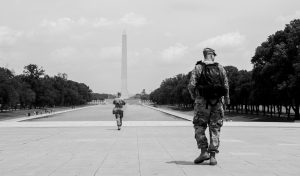Reserve and National Guard members could soon use Department of Defense (DOD) or Veterans Affairs (VA) benefits to withdraw or take a leave of absence from their academic program when activated for military service. That is if a recently proposed bill becomes law.
The Subcommittee on Economic Opportunity, led by Chairman Mike Levin (D-California), first addressed H.R.5603 – Protections for Student Veterans Act in a September virtual hearing, in its draft form. This bill was to be similar to preclusions currently demanded of employers by the Uniformed Services Employment and Reemployment Rights Act (USERRA) in that it would prevent universities from failing a student service member simply for performing their military duties during a semester. It is modeled after the State of Illinois’ Higher Education Veterans Service Act (110 ILCS 49 et seq).
Currently, ensuring student service members are protected from academic reprisal simply for carrying out their short-term military duties (<30 days) is merely a courtesy bestowed by universities, loosely codified in a memorandum of understanding between the Department of Defense. Like other professional courtesies, they are not always afforded.
H.R. 5603 has been through both the Subcommittee on Economic Opportunity and House Committee on Veterans’ Affairs. It subsequently passed the U.S. House of Representatives by voice vote. According to the Congressional Budget Office’s Estimate, “[e]nacting H.R. 5603 would not increase on-budget deficits in any of the four consecutive 10-year periods beginning in 2032.” The bill was introduced last October by Representative Lauren Underwood (D-Illinois) who was proud of her home state’s efforts:
“It is unacceptable for a veteran to be punished for their ongoing service to our country. I’m thankful that my home state of Illinois has taken action to right this wrong, and I’m proud to be introducing the Protections for Student Veterans Act to build on Illinois’ example and ensure that veterans in every state can continue their education without penalty if they are called to serve. This bill I introduced will implement commonsense protections that honor the sacrifices of our service members.”
In its draft form, the bill would have added a new section — withdrawal or leave of absence from certain education — to title VII of the Servicemembers Civil Relief Act (SCRA) (50 U.S.C. § 4021 et seq.). As federal law, this would have empowered the U.S. Department of Justice (DOJ) to enforce the provision. Mr. Ronald S. Burke, Deputy Undersecretary for Policy & Oversight, Veterans Benefits Administration, raised such a possibility as a “concern.”
In its original draft form, the bill captured two types of students: those using VA benefits and those using DOD benefits, such as tuition assistance. Thus, according to Burke, it would put the VA in the awkward position of attempting to enforce a law for which it does not have jurisdiction. In response, Congress modified H.R. 5603. If passed by the U.S. Senate, the bill would empower the VA with the “authority to disapprove a school from participation in VA educational assistance benefits programs for failing to comply,” Burke stated.
Thus, what could have been a powerful stick (SCRA) to support the DOJ’s effort to deter colleges and universities from failing their activated service members has now been replaced with a carrot (38 USC) mere weeks after first being introduced. When contacted for comment, a VA spokesperson stated that “it does not comment on pending legislation. However, VA stands ready to support its partners on the Hill as new legislation is enacted.”
Student Veterans of America commented on the draft bill and stated that it could be improved by ensuring students are given a third option: “Continue their classes for credit while excusing absences during service obligations. Without this option, service members may not be entitled to continue their studies during a short-term activation.”
While we continue to fight for Student Servicemembers at the federal level, we cannot forget the great work being done at the state level. Texas, one of a few states with state law addressing readmission rights, already far exceeds the proposed federal law.
Excused Absence for Military Service, Section 51.9111, includes Texas Guard and Federal Reserve members’ reasonable accommodations, such as additional time to complete school assignments. This was accomplished largely due to the efforts of Jeremiah Gunderson, Director of Veteran and Military Affiliated Services at the University of Texas at Austin, and his team, Texas Education Code.
Even if H.R. 5603 does not meet all our hopes, it is encouraging to see legislation moving in a positive direction across the country.

Matthew Feehan
Director of Advocacy and Outreach
Captain USAR (Ret.)
The Veterans Education Project
To get in touch with Matthew, contact us!




